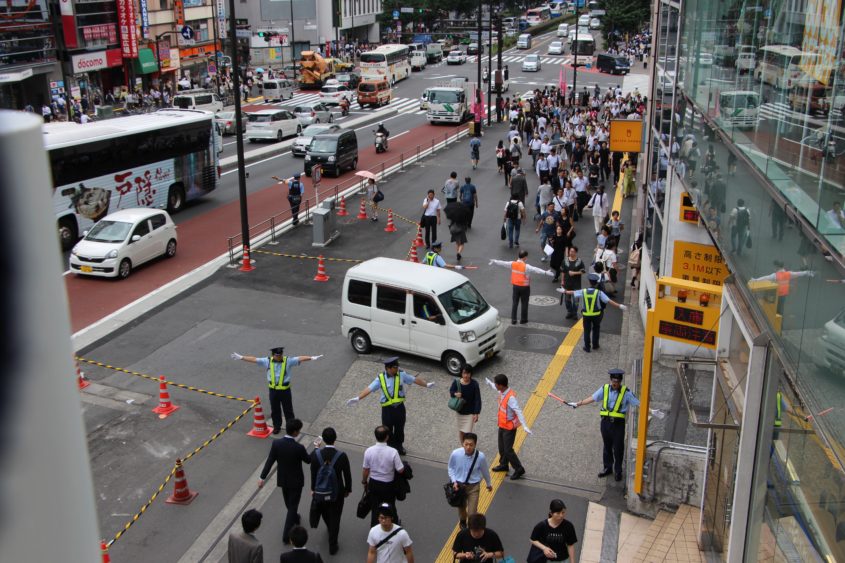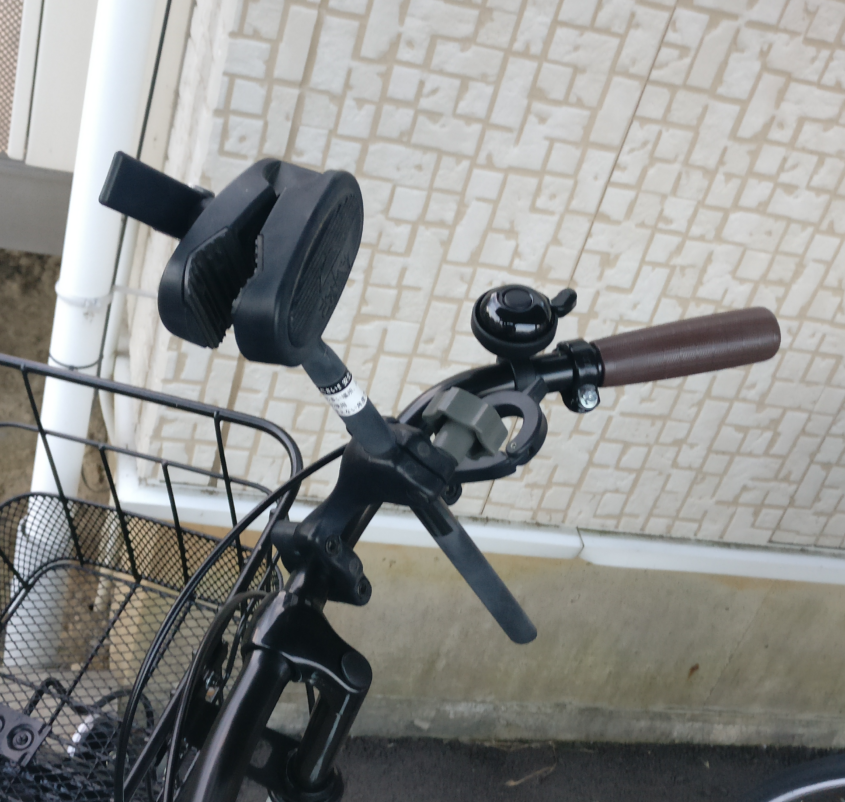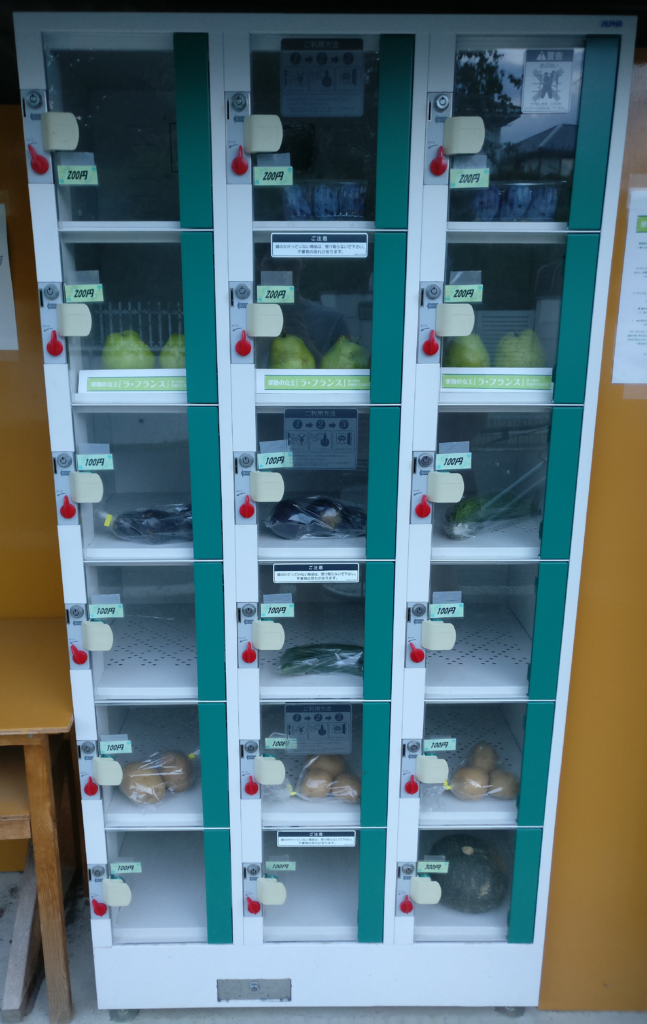You are planing to visit Japan and are wondering how it will feel like? Will the culture shock hit you hard and will you feel totally foreign?
Most of the things in Japan are not radically different from the things you are seeing in the western world. On the other hand of course the culture is very different in many aspects and you will most likely not understand much.
To give you an idea of how it could be like, I made a compilation of the things that I found most memorable when I came here for the first times:
1. “Useless” jobs
After arriving in Japan the first thing I noticed was a person in uniform standing in front of the plane’s exit. “Is he waiting for someone?” I asked myself, and indeed he was. He was waiting for unoriented travelers to answer their questions and help them out. Next, at the queues at the visa counters, there was one person checking if I had filled out the entry forms correctly and another one telling me which counter I should go to.
Later I was leaving the airport. Two people received my luggage and put it into the bus. They bowed upon departure.
There are many more positions of this kind and all of them do not exist in Germany or any of the other countries I’ve been to. Of course in reality these jobs are not useless at all, for a westerner like me it is just surprising that they exist.

2. It’s efficient
Japan is a small country with many mountains and many people. Therefore a lot of fantastic optimizations that make living in such a crowded space much easier were made. From super small and cute cars that are made for narrow streets, over umbrella holders attached to bicycles to the fantastic toilet seats – it’s all there.


3. The train system is incredible
You may be coming from a country where a public train transportation system does not or almost not exist. In Germany, it is pretty well developed and available in all bigger cities. Still, outages are frequent and the operating companies seem to be constantly struggling with the seasons (winter = heating stops working, summer = air condition stops working), the amount of people, and so on.
The train system in Japan, especially the bullet train network (Shinkansen) and the underground in Tokyo, is just amazing. “Why don’t we do it like that?” or “This is how it should be done” came to my mind all the time.
The trains seem to never be delayed, even when traveling hundreds of kilometers. The layout of the underground’s car’s seats makes actually sense. The leg space is huge. Train attendants are super polite and bow every time they leave a car. Even the food offered at stations is actually price worthy and often delicious!
I love traveling by train in Japan.

4. There are many lights
Tokyo is bright. Osaka is bright. Cities in general are bright. Even though I got used to this very fast I think even small cities like Nagano have much more shining advertisements than many of its western counter parts. When walking through central Tokyo, on 8 floor houses you will often see another 7 floors of advertising on top, letting you know about shops, products and trends.
After the Tsunami in 2011 many of these lights were switched off in order to save energy. Today however, they are shining just as much as before.

5 It’s silent
In spite of flashing lights and amusement centers with ear-piercing music, Japan is very quite. When the American project manager of one of the teams I was once working on returned back to Germany from a Japan trip he told me that he had thought Germany was much more silent than America but that Japan is even more quite.
Two months ago two friends of mine and I wanted to go to a club in Tokyo. While we were still undecided and standing in front of a club, the bouncer asked us to please enter the club or leave the road in order to not wake up the residents.
I think in general, Japanese tend to be less noisy than western people. Maybe this stems from the high value consideration has in Japanese society.
6. People will tell you things you didn’t know about yourself
Did you know that you are an exceptionally proficient speaker of the Japanese language and also a master in using the Chopsticks? Oh, and the way you use knife and fork, has anyone ever told you that it is outstanding and really, really beautiful? Well, you will certainly be told so once you come here.
Whenever I talk to people I meet for the first time or haven’t met for some time, I will always hear how great my Japanese is or has become. While it cheers me up, I think real proficiency is reached when people stop complimenting me on my language ability one day.
What you probably also didn’t know is that your face is small, your eyes are big and your nose is tall. I did not yet figure out what actually determines whether one’s face is small or not, but apparently Japanese faces aren’t and most western faces are. And because the other’s peoples grass is always greener, this is great and desirable.

7 Staring
Especially in more rural areas, people will stare at you. And I totally understand it. When I see a group of two or more foreigners here in Nagano, I’m probably the one that’s staring the longest (“Where are they coming from?”, “Why are they here?”, “Do they speak Japanese?”.)
My tip is to just be polite, smile back and enjoy it. If you want to have a nice read about standing out as a foreigner in Japan, I recommend to have a look here.

8. Vending machines
Vending machines are everywhere. When I walk out of my apartment, there is one. When I walk down the road for 50m, there are another three. Around the next corner, there is one for fruits and vegetables I just discovered today and about 100m after that, there are three more of the normal ones.
Most of them offer drinks such as water, green tea, soft drinks, hot and cold coffee and the like. Others offer things like soups, cigarettes, ice cream and more. Seven years ago I thought it was a good idea to try the vending machine fries in the business hotel I was staying in. Totally not recommended.
In Kyoto I recently even stumbled over a vending machine offering fried flying fish in bottles:


9. Tip
There is no tip in Japan. If you ask the clerk at the shop assistant at the convenience store to keep the one yen change, they will not do it. Even if you left the shop already, they will search you, find you and give you what you deserve (1 yen). Same goes for cabs, restaurants and anywhere else.
Personally I think this is quite relaxing. In western countries I have the feeling that it is expected to tip the waiter or waitress and imply a judgement of their service quality with my tip. But what I actually want is to enjoy a peaceful meal in a restaurant that knows its numbers well enough to calculate reasonable salaries, without having to judge anybody or being judged for not giving the amount of tip someone expects me to do.

10. Service
One of the things that had a lasting impression on me is the quality of service. Everyone, no matter how unimportant their job may seem, is taking his or her work very seriously and is extremely competent as well. Everybody is polite and accepts and appreciates the fact that they have work to do. Customer contact is exceptionally good, there is no fighting ever. Even if they can’t speak English, there will be a solution.
This attitude towards work, combined with points 1 and 2 of this list are what makes the level of service so outstandingly high in Japan and interacting with people, no matter where, a great and enjoyable experience.
This does not apply to my local immigration office.
The bull in the china shop
This is exactly what it felt like for the first maybe three times I came here. There’s a ton of etiquette I was and am not aware of. Of course I didn’t think of standing on the left side of the escalator when I just arrived. Of course I replied “irasshaimase” (welcome) when entering a convenience store because I thought it meant something like “hello”. Of course I bowed when I didn’t have to and I didn’t when I should have.
After a couple of days however, this feeling always vanished. Whether it was because I changed or because I grew accustomed to doing things wrong – who knows? Probably both.
I went to local stores, restaurants and izakaya and finally became more comfortable with my new environment. Until this shamefully unadapted foreigners came in and behaved like bulls in a china shop!
What was your biggest culture shock when you first came to Japan? Please feel invited to share your experiences in the comments.



Very useful and interesting. Thank you